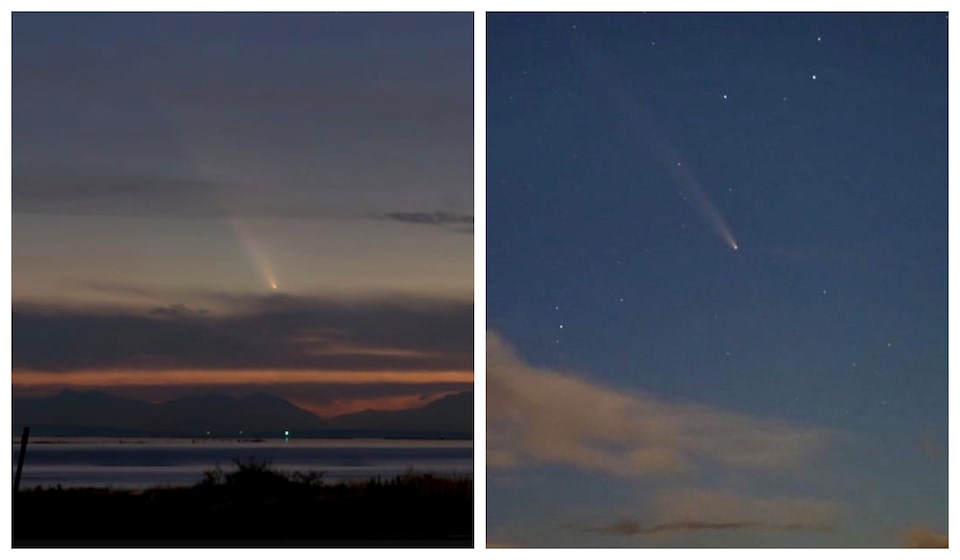Metro Vancouverites captured jaw-dropping images of a rare comet over the past week.
Rosanna Tilbrook, an astronomer at the H.R. MacMillan Space Centre, told V.I.A. in a previous interview that Comet C/2023 A3 was discovered in early 2023 by the Purple Mountain Observatory in Zijinshan, China and then by ATLAS South Africa (which constitutes the 'Tsuchinshan-ATLAS' part of [its] name).
C/2023 A3 is considered a "long period" comet because astronomers estimate it will take the object over 200 years to orbit the sun.
"We think C/2023 A3 won't be back for another 80,000 years, or it might even get ejected from the solar system, so this will be our only chance to view it," she says of the rare celestial event.
White Rock resident Dam Le shared a trio of images of the comet streaking through the inky blue sky, leaving a long trail behind it (see slide two). They wrote in a Facebook post that they observed the rare event on Wednesday, Oct. 16 from 7:45 p.m. to 8:20 p.m.
Richmond local Saba Aziz captured several images of the comet near Steveston on Tuesday around 8:05 p.m. using an iPhone 14 Pro (see slides three and four).
"I finally saw it tonight!" she exclaimed.
Lin Cheah captured images of the comet above a fiery red sunset at Garry Point Park in Richmond on Oct. 12 (see slide five).
Metro Vancouverite David C Zhang shared a picture of the comet streaking over Lions Bay just after sunset on Tuesday (see slide six).
Tedd Buddwell shared images of the comet soaring near Victoria and Vancouver on X, formerly Twitter (see slides seven and eight).
Rare comet makes appearances in Metro Vancouver
Tilbrook says comets are comprised of chunks of ice, dust, and rock, around the size of a small town, and often described as "dirty snowballs."
"When they get close to the sun, they heat up and release dust and gas, producing a long misty 'tail' that can extend for millions of miles. That's why comets look like a bright fuzzy streak across the sky," she explains.
Comets are considered highly unpredictable because their brightness depends on the scattering of sunlight particles reflected on their tails.
Metro Vancouverites can view comet A3 over the horizon in the west after sunset on select dates in October, including Oct. 19, 21-23, 25, 27, 29, and 31, according to In-the-Sky.org data.
A more detailed table of C/2023 A3 (Tsuchinshan-ATLAS)'s position is available nightly with In-the-Sky.org.
Anyone interested in catching a glimpse of the rare comet can also stay up to date with hyperlocal Metro Vancouver weather forecasts across 50 neighbourhoods in the Lower Mainland with V.I.A.'s Weatherhood to plan their viewing experience.



